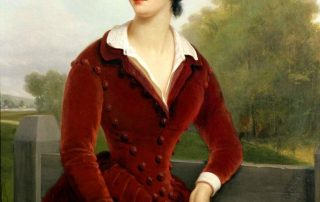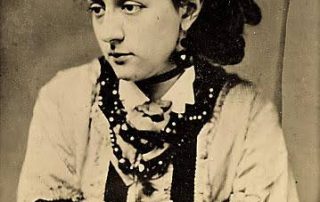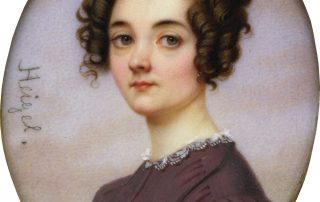Project Description
Lola Montez and King Ludwig of Bavaria
During the forty-three years of her life, Lola Montez had innumerable adventures, was widely known in Europe and America, and actually lost one king his throne. She lived at one time or another in nearly all the countries of Europe, and likewise in India, America, and Australia. In 1846, after a number of failed relationships and endeavors, she arrived in Munich, the capital of Bavaria. The country was then governed by Ludwig I., a king as eccentric as Lola herself. He was a curious compound of kindliness, ideality, and peculiar ways. He wrote poetry, and he had a picture-gallery devoted to portraits of the beautiful women whom he had met. What was odd and peculiar in others pleased Ludwig because he was odd and peculiar himself. Therefore, when Lola made her first appearance at the Court Theater he was enchanted with her. He summoned her at once to the palace, and within five days he presented her to the court, saying as he did so: “Meine Herren, I present you to my best friend.” In less than a month Ludwig had given Lola the title of Countess of Landsfeld. A handsome house was built for her, and a pension of twenty thousand florins was granted her. With the people of Munich, she was unpopular. They did not mind the eccentricities of the king, since these amused them and did the country no perceptible harm; but they were enraged by this beautiful woman, who had no softness such as a woman ought to have. She was discourteous to the queen, besides meddling with the politics of the kingdom. Finally, the countess tried to establish a new corps in the university. This was the last touch of all. A student who ventured to wear her colors was beaten and arrested. Lola came to his aid with all her wonted boldness; but the city was in commotion. Daggers were drawn; Lola was hustled and insulted. The foolish king rushed out to protect her; and on his arm she was led in safety to the palace. As she entered the gates she turned and fired a pistol into the mob. No one was hurt, but a great rage took possession of the people. The king issued a decree closing the university for a year. By this time, however, Munich was in possession of a mob, and the Bavarians demanded that she should leave the country. Ludwig faced the chamber of peers, where the demand of the populace was placed before him. “I would rather lose my crown!” he replied. The lords of Bavaria regarded him with grim silence; and in their eyes he read the determination of his people. On the following day a royal decree revoked Lola’s rights as a subject of Bavaria, and still another decree ordered her to be expelled. The mob yelled with joy and burned her house. Poor Ludwig watched the tumult by the light of the leaping flames. He was still in love with her and tried to keep her in the kingdom; but the result was that Ludwig himself was forced to abdicate. He had given his throne for the light love of this beautiful but half-crazy woman. She would have no more to do with him; and as for him – he had lost a kingdom merely because this strange, outrageous creature had piqued him and made him think that she was unique among women.






